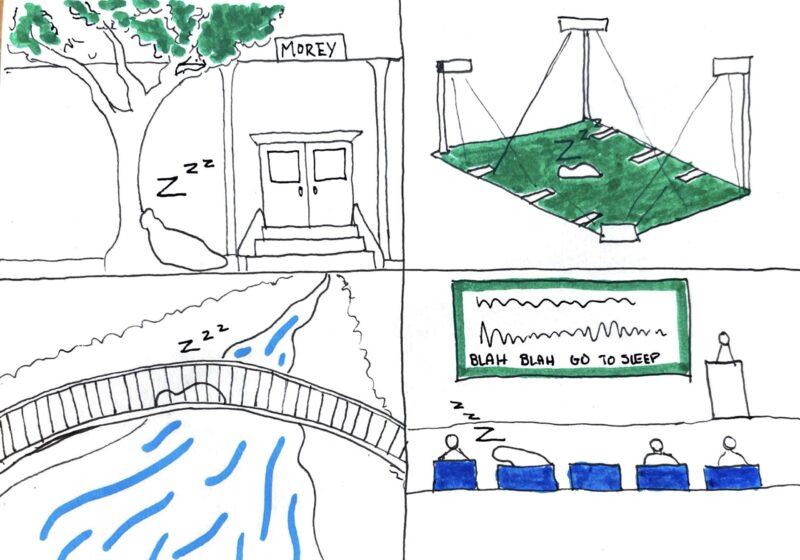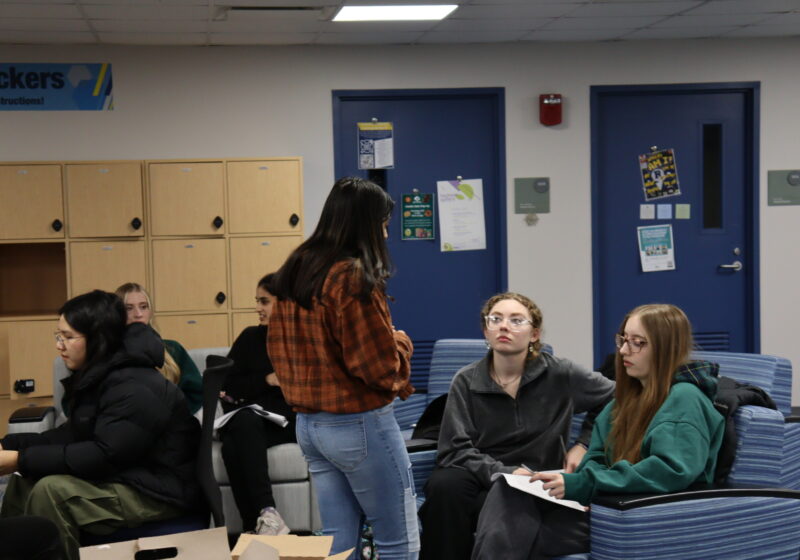As an Indian-American, I have never thought of myself as any more or less of one of my cultures. I have never had to stop and ask myself about my identity. I am just me. It is as simple as that, right?
Not exactly.
Everything I thought I knew about my identity crumbled after I found myself a victim of discrimination by one of my own cultures.
It was Orientation. My hall and I went to pull out weeds for Wilson Day. Unfortunately for us, the woods we were working in were littered with poison ivy.
After I got back to my dorm, I noticed a rash on my leg. I headed to UHS to check it out.
Upon walking in, I noticed two international students from India in the waiting room. They were speaking Hindi to each other. I was excited, as I had yet to meet any Indians on campus.
I come from a town about 20 minutes away from Rochester that is known for its lack of diversity. We only had a few Indian students in my high school. So, I envisioned college as a diversifying and culturally broadening experience, and was overjoyed to meet students from India to learn more about my culture.
I went to sign in, and then suddenly I heard it.
“Do you see how short her shorts are? They’re like underwear. She’s so American,” a voice said while laughing in Hindi.
“A disgrace. So shameful. So American. She looks like a whore,” another voice said disgustfully in Hindi.
Little did they know, I could understand Hindi. After signing in, I went to the other side of the room and took a seat while they continued to bash how “American” I was.
I wanted to say something. But my mouth opened and no words came out. I wish I had spoken up. I think what got me flustered is that you never think people from your own culture will discriminate against you.
The clash between my two cultures that I had never dealt with before suddenly was brought to the surface. It began consuming my thoughts.
“I am not fully Indian, but I am not fully American. So what am I?”
That question bothered me for months. I did not know what to do. So I started sharing my story with my friends to see if they had encountered similar problems.
To my fortune, many of them had. My friend from Bosnia grew up in America. When he goes back to Bosnia, he often gets criticized for the way he dresses and acts.
“Every time I go back to Bosnia, people I used to be close to treat me differently or they’ll make
little remarks about how ‘American’ I’ve become and how much less of a Bosnian I am,” he said to me.
My other friend is Asian and Spanish. She also has experienced racism and a clash of cultures.
“I experienced what you went through from both sides of my family. I don’t look fully white and I don’t look fully Asian,” she said. “For the longest time, I felt like I couldn’t identify as Asian-American because I don’t physically represent what the ‘stereotypical’ Asian person looks like.”
After talking it out with my friends, I learned and accepted that I am both Indian and American, no more of one and no less of one. Dressing the part in no way defines who I am.
I have also learned that racism is still thriving today, and it is individuals like me who keep it alive by not shutting it down. After the incident during Orientation, I encountered another racist incident on campus a few weeks later. But I did not speak up.
A few African-American students asked my math professor to switch to a darker marker so they could see what he was writing. A Caucasian student whispered to his friend in front of me that it would not matter whether they could see — they would fail the exam anyways. Again, I said nothing.
Moreover, a friend recently shared with me an incident where his Caucasian friend was emotional at a UR play and another student made fun of his reaction due to his “white privilege.”
Any race can be racist toward another, whether it’s within one’s culture or not. It is our decision to speak up against such behavior that can make a difference.
I wanted to share my story today to help people learn from my mistakes. The next time you find yourself in a similar situation, speak up. I know I will.
Midterms
Top 5 Campus Napping Spots
And here’s another perk: You also get to wake up in a surprisingly new location every time — teleportation style.
art
Spring blooms at the George Eastman Museum’s “Dutch Connection
“I saw fresh flowers in February — in Rochester” is a sentence I never thought I would say.
brain
The University’s new Brain Exercise Intiative aims to help those with Alzheimer’s
Junior Atreyee Ghosh, biochemistry and psychology major, first heard about the Brain Exercise Initiative (BEI) through a friend who is…





